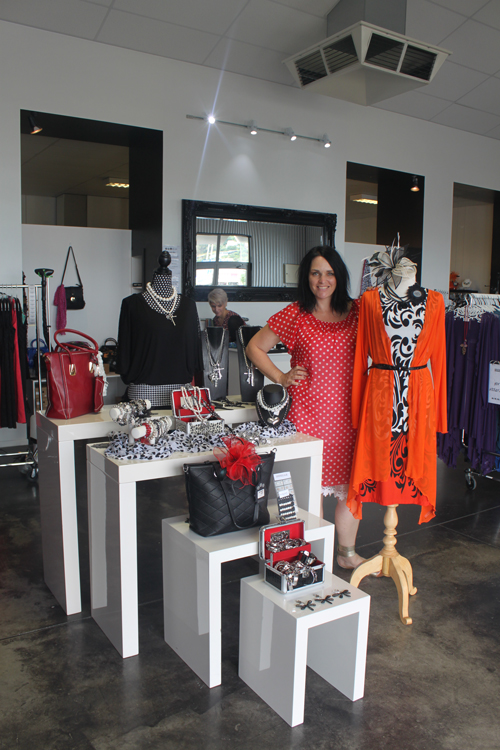The touch of an angel
Angel investors are often an entrepreneur’s first port of call for capital. But what’s it like dealing with angels? Is it more halos or hassle? NZBusiness sat in on the Angel Investor Summit where entrepreneurs shared their highs and lows.
Angel investors are often an entrepreneur’s first port of call for capital. But what’s it like dealing with angels? Is it more halos or hassle? NZBusiness sat in on the Angel Investor Summit where entrepreneurs shared their highs and lows.
Scantily-clad forms don’t tend to dominate investment gatherings. So perhaps it wasn’t surprising that there was a palpable feeling of renewed interest when Kiwi entrepreneur Paul Cameron flicked up a slide of a rather beautiful female ‘angel’ at the recent Angel Investor Summit in Auckland.
“We really like angels. They are beautiful people. And this is what I think about when I think about my angels,” Cameron said to howls of laughter from the mainly male, mainly older and mainly well-to-do and (thankfully) fully dressed audience.
Cameron says he likes his angels for a number of reasons outside the cash they bring. Key for him has been the support they’ve given him and his business, Booktrack.
Booktrack’s patented technology lets anyone add a synchronized movie-style soundtrack, including sound effects, to an e-book or other digital content, with the audio paced to the reader’s own reading speed. The idea dates back to 2009, but it wasn’t until 2011 that Cameron sought help and capital. Since then, Booktrack has raised more than $2 million from early stage investors including Sparkbox, The Warehouse founder Stephen Tindall’s K1W1, Kiwi entrepreneur Derek Handley and US tech entrepreneur and investor (and self-proclaimed Kiwiphile) Peter Thiel.
Quoting boxer Mike Tyson, Cameron says “Everyone has a plan until you are punched in the face,” and that’s what it’s like for entrepreneurs; things often don’t go to plan. When that happens you need to know there’s support there; that someone is guarding your back, he says.
Right from the beginning Sparkbox’s Greg Sitters has always been there for him, with almost daily contact at the beginning of his angel journey, he says. “It had been eleven months. It was 9.30 at night and my phone rang. It was Greg and he goes ‘How you going?’, and I reply ‘Good, what’s going on?’ He says ‘Nothing, I just haven’t heard from you so I was just checking in that everything was all right’.
“It was the first time in months we hadn’t actually touched base for more than 24 hours,” Cameron laughs.
But knowing that sort of support is there when you’re trying to build up a business and trying to raise capital is invaluable, he says.
Another thing angels bring to the table is connections and networks, says Cameron. When Kiwi entrepreneur Derek Handley sold his successful mobile marketing company, The Hyperfactory, a friend suggested he get in touch with him. Cameron went to Sitters and asked if he knew Handley. He did, and a meeting was arranged. Soon Handley was an investor and had arranged for Cameron to go to Silicon Valley to meet some members of his own network. These introductions led to Cameron netting Thiel as an investor and the rest, as they say, is history.
Antony Dixon, founder of super slimline radio frequency identification product manufacturer Times-7, says without his Kiwi angels’ encouragement and networks, he’d have never have got on a plane and met, let alone landed, his current Silicon Valley partners.
Similarly Marie-Claire Andrews, co-founder and CEO of smartphone event app ShowGizmo, says connections are vital, especially when you head off overseas. But it’s not just connections for sales or investment that are important, she says: “It can be connections for anything: a place to sleep; a desk.”
Another big plus is just the belief angels bring to an entrepreneur, says Cameron. “When someone says they want to invest in your business, as an entrepreneur you feel 100ft tall; like you can take on the whole world. It gives you amazing self-belief and the motivation to go an extra 200 percent when you’re already giving it 100 percent.
“That’s probably my favourite part of working with the angels; that belief they give us and how they bring that to the whole entrepreneurial ecosystem.”
Andrews was also upbeat about her angel experience, even highlighting how important the frequent pitches were to both testing and honing her business strategy and as an important dress rehearsal for getting sales. “Practising pitching is practising selling… and that’s what we have to do every day as entrepreneurs.”
But the downside of all this relationship-building is the time involved for what is often not a lot of capital at the end of the day, she says. “It’s been the time pressure that’s been the hardest for us; the involved time, my time.” Every pitch is different and it differs between angel groups, but angels should streamline their processes more and be far more transparent about what’s happening and how as an entrepreneur you’re doing, so there’s no time wasted just wondering what’s going on, she says.
After three years, ShowGizmo has netted just under a million in external investor capital, compared with US$40 million raised by the company’s biggest competitor in the US, says Andrews. “Our last round was a simple just under $100,000 top-up for a specific reason. Admittedly it only took three months, but it still took about 80 hours of my time.”
Mind the time
John Huston, founder of one of North America’s largest Angel Groups, the Ohio Tech Angel Fund and a key note speaker at the 2014 Angel Summit, says the only constant entrepreneurs have is 168: the number of hours in a week.
“The most successful entrepreneurs are those who use those 168 hours most effectively.
“Angel groups who squander the time of entrepreneurs are not just unkind, they are evil,” he laughs. Investors need to get wise about “harmonising the size of their cheque with how much time they are going to take,” he says. “It just drives these folk crazy when they have to spend as much time with some $10,000 cheque writer as they do with someone who ran a $1 million round.”
The process to actually getting capital is really, really hard, admits Rachel Lacy, founder and director of Drikolor, which plans to revolutionise the paint market by introducing dry pigments that can be mixed by anyone. “It’s dating and we just want to get married.”
To improve the process Cameron says some angel groups need to realise it’s okay to say “no”. There’s nothing worse than having a great meeting, a seemingly great pitch and then never hearing anything again, he says.
“We’re feedback junkies,” agrees Andrews. “We need to know why.”
Comments like, “we did not invest because it’s not right for us at this time,” mean nothing, says Cameron. “Tell us if it’s because we look funny. It’s even best to say it in the meeting so we don’t waste any more time.”
Lacy says now there are more angel groups in New Zealand, they should be a little smarter about matching investors to companies and their founders – as you can’t, and you shouldn’t even try, to separate one from the other. “It would be really good if I didn’t have to endlessly pitch to people who just want to invest in the next Facebook.
“Starting up is hard enough, so you want as much investment alignment as you can. You want a group of angels to invest who understand and are interested in your space; and share a similar business philosophy as that will affect how your company develops. You can’t retrofit culture.”
Know the business
Understanding their space better was a common grumble among the entrepreneurs who shared their experiences. Andrews says it was still early days in the smartphone revolution when she started out, but she was a little shocked and dismayed when one potential investor asked not about the markets she was heading into, her financials or her team, but simply, how they could get her app on their phone.
Cameron says if investors want to be involved in tech companies they should learn more about it and the best way to do that was to actually start using it. “Go buy a smart watch and use it; go for a run and measure your heart beat online; start tweeting; just do it.”
It amazes him when some investors say they want to help him develop his company. “But hey, you have to get your kids to help teach you how to use your phone, so why do you think you know anything about the consumer Internet.”
Investors should ask themselves how relevant their experience really is, he says. “It doesn’t mean they can’t help with the strategy, but they need to recognise their own limitations.”
That said new entrepreneurs do need a lot of education, says Cameron. Even the terms investors use are like a foreign language.
Lacy says it would be useful if investors forced entrepreneurs to do a five-day Institute of Directors course on what your responsibilities as a board director actually are after they invest.
As to boards, it’s really vital you get the right people on your board at the right time, she says, and just because someone invests in your company, it doesn’t mean they should have a board seat.
“We have a fantastic first board with loads of sales and marketing experience, which is brilliant; it was just 18 months too early.”
Today Lacy’s company Drikolor has finally caught up to her board’s experience and she says she wouldn’t hesitate to recommend the angel investment route to other budding entrepreneurs.
“If you get the right mix, it’s phenomenal.” After all, without the angels, their knowhow, their connections and their cash, we wouldn’t be here, she says. “But obviously the reverse is true as well.”
Lesley Springall in an Auckland-based freelance business journalist. www.linkedin.com/in/lesleyspringall






